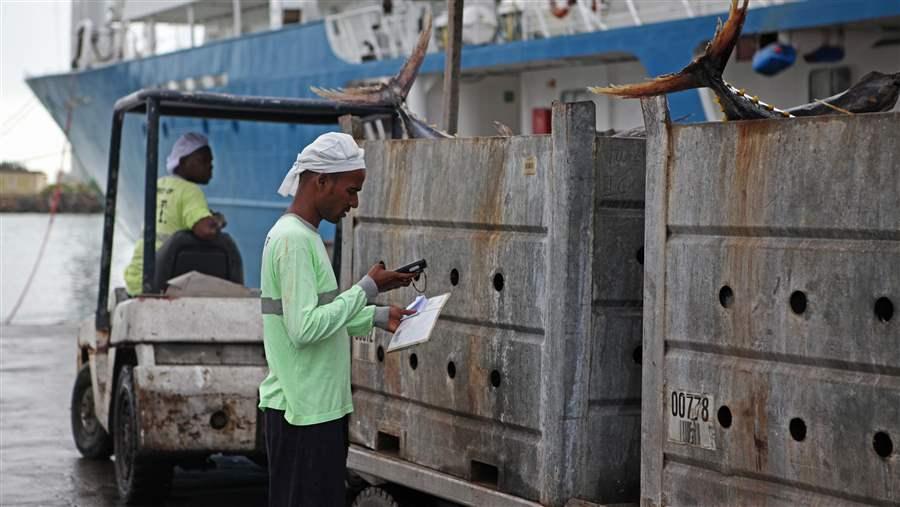Pew Commends 2 New States Joining the Port State Measures Agreement
International treaty to end illegal fishing reaches 50-member milestone
WASHINGTON—The Pew Charitable Trusts praised last week’s news that Namibia and Peru have joined the Port State Measures Agreement, the first binding international treaty designed to stop illegal, unreported, and unregulated fishing. The news came as leaders from more than 100 countries convened Oct. 5-6 at the Our Ocean conference in Malta to discuss maritime security, marine protection, a sustainable blue economy, and ending illegal fishing.
The new additions bring the number of parties to the agreement to 50. Adopted by the U.N. Food and Agriculture Organization in 2009 and first acceded to a year later by Myanmar, the agreement strengthens controls on foreign-flagged fishing vessels landing or transshipping fish at ports. It also serves as a mechanism for countries to work together to apply robust regulations, making it increasingly difficult for illegitimate catch to make its way into national and international markets.
Julie Janovsky, acting director of Pew’s ending illegal fishing project, issued the following statement.
“The news that Namibia and Peru are joining 47 other countries and the European Union in adhering to the Port State Measures Agreement is a major milestone for efforts to close the world’s ports to illegal fishing, which threatens the economies of coastal communities by taking up to 26 million tons of seafood—worth up to $23.5 billion—from the world’s oceans every year, or 1 in 5 wild-caught fish in the ocean.
“Given Namibia’s and Peru’s importance as fishing nations and consumers of seafood, their adherence to the agreement is an important step toward reducing the economic incentives that prompt fishers to operate illegally.
“With the steady increase in the number of parties to the agreement, we can see significant progress in the international community’s efforts to bring about the advancements that are still necessary to address illegal, unreported, and unregulated fishing.
“Illegal fishing operators continue to look for the path of least resistance to get their product into the supply chain, but their attempts to exploit weaknesses in the system are being thwarted by ever-improving application of the treaty. Countries that are party to the agreement are demonstrating their commitment to ensuring that the fish they buy has been caught legally—and that it comes from well-managed fisheries.
“Illegal fishing is a shared problem, so collaboration and strong leadership are a crucial part of the solution. The countries that have adhered to the agreement are demonstrating the kind of foresight and leadership needed to end illegal fishing.
“Trying to track and deal with illegal operators on the open ocean is a dangerous and costly undertaking. By comparison, monitoring at port is cost-effective and safe—and can help to curb illegal fishing and, eventually, put a stop to it.”
###
The Pew Charitable Trusts is driven by the power of knowledge to solve today’s most challenging problems. Learn more at pewtrusts.org.







